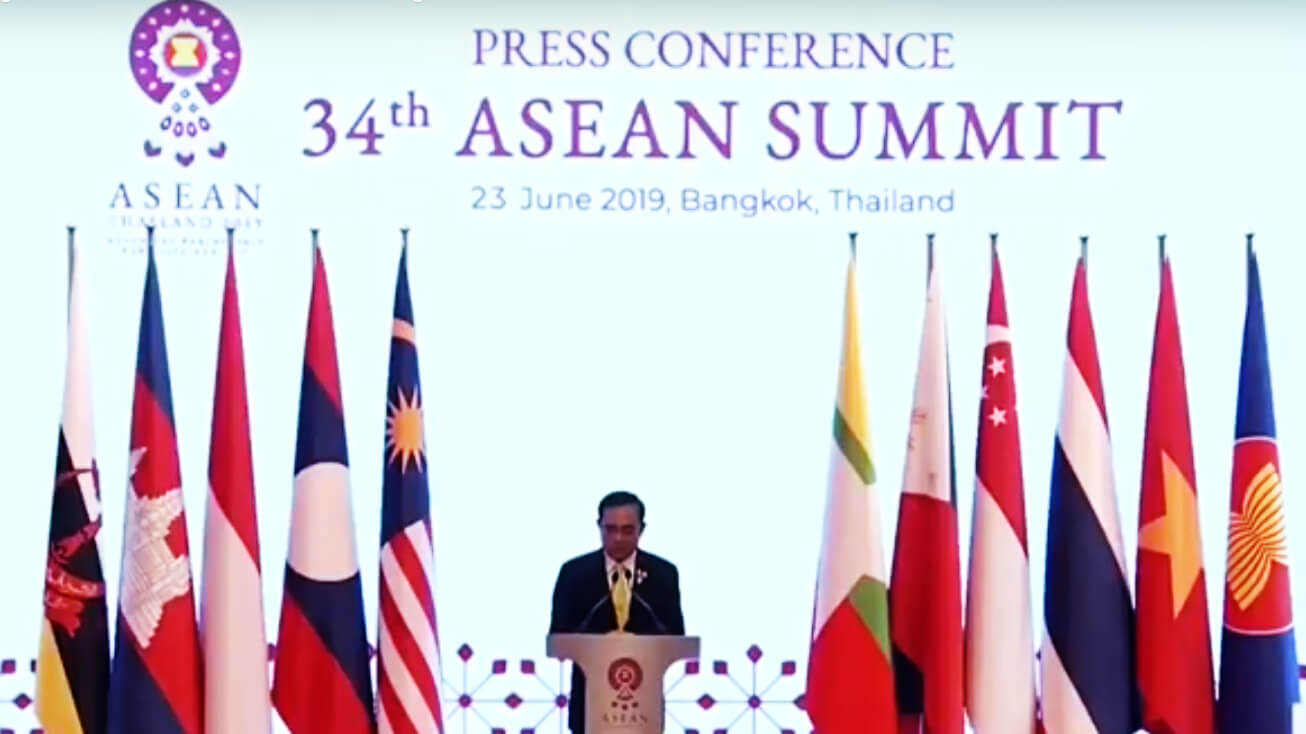Thailand and ASEAN economic integration
Amidst global challenges politically and economically the ten members of Association of Southeast Asian Nations or ASEAN willl need even more economic strength and bargaining power globally.
The 34th ASEAN summit was held in Bangkok and one of the main aspect of the statement is to emphasize economic integration among the ten ASEAN members.

Amidst global challenges politically and economically the ten members of Association of Southeast Asian Nations or ASEAN willl need even more economic strength and bargaining power globally.
During the press conference after the summit General Prayuth chan-ocha urged other nations to complete negotiation this year for regional comprehensive economic partnership (RCEP).
If accomplished by the end of this year the RCEP will encompass 45 percent of world population and more than a third of the global GDP, but this group does not include the US.
In an exclusive interview with the Bank of Thailand governor Thai PBS asked how Thailand should be prepared for the global economic challenges.
One important challenge is how to retrain our current workforce . You hear complaints all the time in Thai newspapers that the Thai university does not produce graduates fit for the job, and it’s a huge burden for employers to retrain these new graduates so costly for them there is unemployment underemployment for certain graduates with certain types of degree.
Thailand is becoming an ageing society and the number of new students going to university is under decline. On the other hand we have more than 30 million people in the current world vast that need to be retrained to be able to equip with digital transformation with technology advancements
Universities can become a catalyst in in helping retrain this workforce and definitely it needs cooperation from employers of these workers.
It also requires certain types of support and incentives from the government to incentivize new workers to get retrained and to incentivize employers to retrain those workers.
So there are quite a number of efforts that different stakeholders have to join hands in setting up a new platform for Thailand and be able to upgrade the quality of our current workforce.
As long as we are aware of the challenges ahead of us, and you know we all realize that we all have to take parts even in helping upgrade the Thai economy, the Thai society, and not looking for a particular solutions a particular agencies to address the big problems will be facing, a very positive Thailand can move forward with a sustainable footing.
The way I look at Asean and you know and how Thailand could benefit from ASEAN and how ASEAN could benefits from Thailand, I think we lucky be very fortunate that we are a member of ASEAN and we share common objectives of creating an economic community that would benefit our people in Asean.
The reason I’m saying that because there are a lot of complementarity among ASEAN members as you have pointed out.
We shortage of workers which shortage of Labor and working age population is on the decline but we can benefit from immigrant workers from other ASEAN countries coming to work in Thailand
The supply chain of certain manufacturing industries that we used to have solely in Thailand is now expanding in neighbouring countries. With more abundance of natural resources and cheaper labor we have seen the supply chain of Thailand industry expanding into neighboring countries leveraging on the strength of each country in creating the overall comparative advantage of Thai firms competing abroad
So there are a lot of complementarity that that we can benefit from ASEAN countries and the fact that we as the second largest economy in Asean, we have been working very closely with with other ASEAN countries to ensure that we can maintain our comparative advantage.
We can maintain our competitiveness we can jointly benefits on a win-win basis with other ASEAN countries and move our economy forward.


